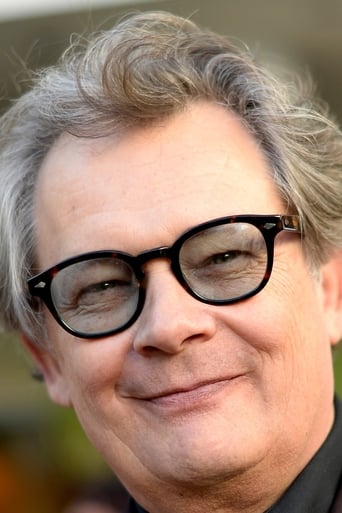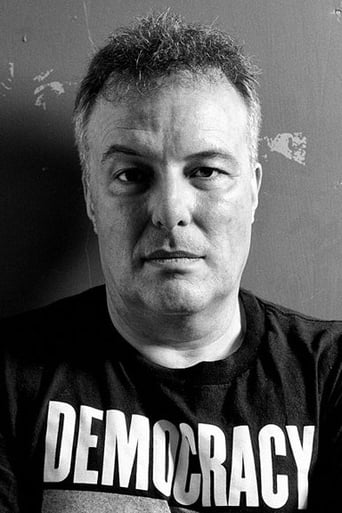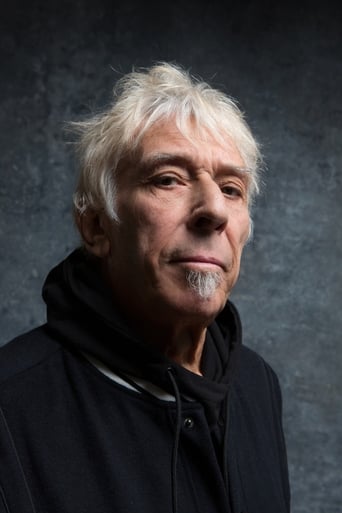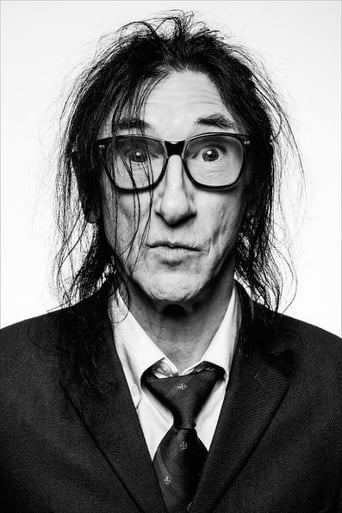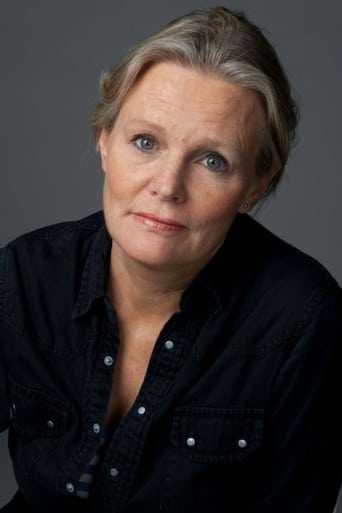MamaGravity
good back-story, and good acting
Plustown
A lot of perfectly good film show their cards early, establish a unique premise and let the audience explore a topic at a leisurely pace, without much in terms of surprise. this film is not one of those films.
Frances Chung
Through painfully honest and emotional moments, the movie becomes irresistibly relatable
Rexanne
It’s sentimental, ridiculously long and only occasionally funny
jmehrdad
I give this 2 stars because what started out as such a great commentary on punk rock fell apart so horribly at the end. It pretty much nullified the whole film.This documentary should have just stopped after the 1970s. The filmmaker does such a great job of telling the story of punk and the bands that formed it. Unfortunately, he completely glosses over and leaves out some truly influential punk in the 80s and 90s. Instead puts in pop rock garbage like Sum 41 & Limp Bizkit. Which, I'm sorry, have no business even being mentioned. It's almost like the filmmaker obviously came out of the 70s era knowing anything and everything about the punk scene and then lost touch with what happened next. All he could do was look up some popular bands that are considered "punk" by pop culture and stick them in there. The 80s and 90s just fell apart in this film and if he couldn't give proper detail or at least accurate detail, to these decades, like he did with the 70s, he just should have stopped while he was ahead.I was so angry after wasting 2 hours of my life watching this film.
clt_nems
If you want to understand the original nature of "punk" from the people who were there and who know their own motivation, and not what is now simply a label, you must watch this film. It intentionally stops when the 1st wave of punk stopped, and explains how the next movement was able to begin (the root of Grunge is in the 1st wave of punk). The 2nd wave is also not included, but that wave is captured in a different film titled "American Hardcore" from 2006. Both are must sees, and must own on DVD. Punk: Attitude is the single most accurate and compelling film regarding punk ever made. For anyone who enjoys The Clash, The Sex Pistols, The Pretenders, Siousxie & the Banshees, Adam Ant, or enjoys listening to Henry Rollins and Thurston Moore, you need to watch this film.
martinpercival-1
Sometimes it does feel like punk never happened but, peel back the surface in a great many areas, especially in much literature and many films, and talk to some people in their teens and 20s and the true influences are still certainly there, albeit maybe a little beneath the surface.If the question "where did the Punk movement come from & where did it go to?" has ever run through your brain then Don Lett's film "Punk Attitude", together with Jon Savage's book "Englands Dreaming", are the best places (so far) to start looking to answer this. They also both help explore the ways the movement influenced many peoples lives, and not only the musicians involved, especially in regards to getting them involved - to be players and not just spectators, also clearly demonstrating that it's still relevant to the FUTURE."Punk Attitude" makes it very clear that punk didn't all start with the Ramones in the US and the Sex Pistols & Clash in the UK and that punk = an attitude, not a hair cut or a style of clothing - just in case people might think otherwise! Although all three bands were hugely influential when they formed in the mid 70s, and still are very much so now nearly 30 years later, they didn't come from out of nowhere and had their own host of influences back to Elvis and Jerry Lee Lewis and on through the British Invasion groups like the Who, Kinks and Small Faces. These groups in turn influenced the Standells, Sonics and Count Five and then on through the Velvet Underground, Doors, Stooges, MC5 plus the New York Dolls. Letts explores this cross pollination and influencing process very well in "Punk Attitude", without turning it into a boring navel gazing university thesis style analysis that would have been totally inappropriate for such subject matter.So what makes him qualified to do this? Don Letts is one of the very best placed people to make a documentary of this type. A very early player on the UK Punk scene, and prior to this even as a rag trade rival to Malcolm McLaren and Viv Westwood, he went on to dj at London's Roxy Club in 1977 and manage the Slits. At the time he was not a musician. Punks impact upon him was to make him realise he could be a film maker. He subsequently filmed many of the key bands of the era on Super 8 for what became "Don Lett's Punk Rock Movie" featuring the Banshees, Clash, Heartbreakers, Sex Pistols, X Ray Spex and the Slits. Some of this material, plus much previously unreleased live footage and recently shot interviews, surfaces in "Punk Attitude".Letts covers the UK 76/77 era scene very well in the film (he was THERE after all!) as well as the New York scene. LA possibly gets a little unfairly overlooked, with no mention of X being a surprising omission. John Lydon is also intriguingly omitted, especially as Letts and he were and are good friends, but it's not as if Mr Lydon hasn't had his say previously. Syl Sylvain, Arthur Kane and David Johansen from the New York Dolls also help paint the pre 1976 New York picture, with Johansen mentioning how terrible he thought the Ramones were when he first saw them! Letts also uses interviews with people who were part of the various scenes but who were not musicians, most notably fellow film maker Jim Jarmusch whose contribution adds a great deal to conjuring up the sights, sounds and smells of the late 70s, early 80s New York scene as Punk evolved into No Wave and later Hard Core.Of the musicians the Pete Shelley and Howard Devoto interviews help highlight very effectively that Punk wasn't just a London and New York phenomenon, as does Chrissie Hynde, Wayne Kramer covering Detroit and Henry Rollins enthusiastically covering the early 80s musical evolution of Black Flag on through to Nirvana and the birth of grunge in the early 90s. So who's not included who arguably could/should have been? Patti Smith and Iggy Pop were both touring and unavailable when Letts was filming and no Lou Reed? Well, he was just being Lou Reed! ;-) Look out for the UK limited edition 2 x DVD version with a host of excellent extra features including a very entertaining interview with Dave Goodman, the Sex Pistols live sound engineer and first studio producer, who sadly died in February 2005 thus making this one of his last interviews. The limited edition DVD also includes a facsimile of 2 copies of the early UK fanzine "Sniffin Glue".All in all this is VERY highly recommended viewing! Why only 8 stars out of 10? Probably only because Letts would have been the best person to explore the UK 1977 reggae/punk crossover and it's not covered here in any depth......but maybe he's holding that back for another day. If you want only the music then don't buy this - it's a documentary on the whole scene. One day maybe Lett's "Punk Rock Movie" will make it to DVD......and THEN you will be able to get much of the music too!
mcshortfilm
When you see a documentary film with the word "Punk" in the title, you really can't have high expectations. It's tempting to watch but you know you are going to miss a lot when a film tries to strip down a huge movement and make it so concise. Granted, the film is about attitude as it states in the title but somewhere along the film, it feels as though the point gets a bit lost. We know early on that being punk was about being different and being able to express yourself without any current influence. There is only one documentary I know of that makes this point clear and that is the Sex Pistols documentary film "PIST". "Punk: Attitude" seems to focus chronologically on the New York scene, The British scene and then the L.A. scene which is fine but the problem is that we only see the punk artists that fit the status quo (which is totally contradictory of what punk was all about.) What the film should have done was emphasize more closely the importance of being different and how that idea transcended new directions and movements in the world of punk. The film suggests that punk seemed to die in the 1980's as far as the mainstream was concerned but this is absolutely false. It is also a bad direction from the point of being different which had nothing to do with catching on to the mainstream. As one of the interviewees said, "you only need 5% to really get people to think in a new way". But as far as popularity is concerned, there were a good number of punk musicians that were visible at least within the margins of the mainstream during the 1980's. There was Devo, Brian Eno, Elvis Costello, Fishbone, the Pogues, Dinosaur Jr., The Cure, The Butthole Surfers, The Red Hot Chili Peppers, Tom Waits and Jonathan Richman among countless others. (Yes, Jonathan Richman, former Modern Lover who influenced the Sex Pistols with his infamous song "Road Runner".) (I'm sure there are plenty of people who would challenge me on some of these artists as being labeled punk but punk is really only a paradime of many styles of music like hardcore, new wave, no wave, grunge and my favorite "alternative".)Despite the overemphasis of punk on the mainstream culture, the film does include some artists that are probably not so well known to the average punk fan. Bands like "Suicide" and "Slit" were a delightful surprise. But as far as bigger bands were concerned, why was X never mentioned or the Descendents or the Minutemen? Or Fugazi or Husker Du? I guess the film would just have to be a bit longer. I didn't really appreciate the bands that were mentioned in the end like Rancid and Limp Bizkit. That really gave a blow to the authenticity of punk. However, I was happy to hear the interviews with Legs McNeil author of "Please Kill Me" and Bob Gruen as well as Mary Harron, former Punk magazine writer and current independent filmmaker (I Shot Andy Warhol) as well as filmmaker Jim Jarmusch. These guys helped us to see the world of punk in a bigger light that has more to do with just the music. Its the ability to change ideas and keep things new and different in a postmodern world.
